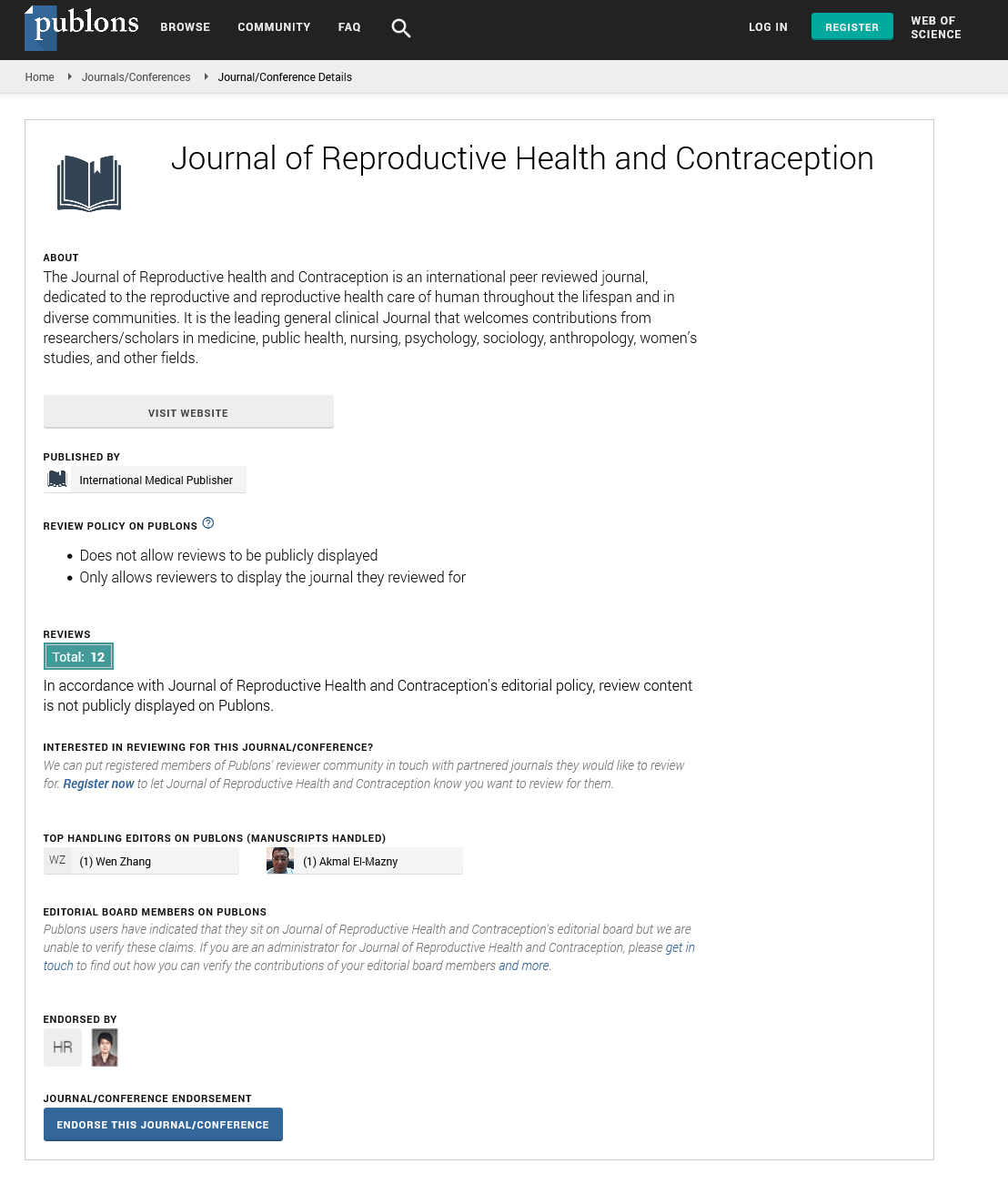ISSN : 2471-9749
Journal of Reproductive Health and Contraception
Why women in Ethiopia give birth at home? A systematic Review of Literature
International Congress on Midwifery and Maternal health - October Webinar
October 11, 2021 | Webinar
Seifu Kebede
Salale University School of Midwifery, Ethiopia
ScientificTracks Abstracts: J Contracept Stud
Abstract
Objective: This study aimed at reviewing identifying reasons for home delivery preference, determining the status of homebirth in Ethiopia, and identifying sociodemographic factors predicting home delivery in Ethiopia. Method: a systematic literature review regarding the status of homebirth, reasons why women preferred homebirth and socio-demographic determinants of home deliveries were was performed using CINAHL, MEDLINE, Google Scholar and Maternity and Infant Care. Key words and phrases such as home birth, home delivery, childbirth, prevalence, determinants, predictors, women and Ethiopia were included in the search. Results: a total of 10 studies were included in this review. The mean proportion of homebirth was 73.5%. Maternal age, ANC visits, maternal level of education, distance to facilities, previous facility births were significantly associated with homebirth. Perceived poor quality of service, distant location of facilities, homebirth as customary in the society and perceived normalness of labour were identified as reasons for choosing homebirth. Conclusion: Despite the significance of skilled birth attendants in reducing maternal and newborn morbidity and mortality, unattended homebirth remains high. By identifying and addressing socio-demographic enablers of home deliveries, maternal health service uptake can be improved.
Biography
Seifu Kebede Weldegiorgis has completed his BSc Midwifery and MSc Midwifery Education at Mekelle University, Ethiopia. Then after winning a very competitive scholarship, Chevening Scholarship, he travelled to the United Kingdom and studied MSc Advanced Midwifery Practice at Anglia Ruskin University in Chelmsford city. He has published several maternal health related papers on reputable and peer-reviewed journals. He is also working as a peer reviewer at PLOS One journal. Currently, he is working as an Assistant Professor of Midwifery at Salale University School of Midwifery in Ethiopia.
Google Scholar citation report
Citations : 201
Journal of Reproductive Health and Contraception received 201 citations as per Google Scholar report
Journal of Reproductive Health and Contraception peer review process verified at publons
Abstracted/Indexed in
- Google Scholar
- China National Knowledge Infrastructure (CNKI)
- WorldCat
- Publons
Open Access Journals
- Aquaculture & Veterinary Science
- Chemistry & Chemical Sciences
- Clinical Sciences
- Engineering
- General Science
- Genetics & Molecular Biology
- Health Care & Nursing
- Immunology & Microbiology
- Materials Science
- Mathematics & Physics
- Medical Sciences
- Neurology & Psychiatry
- Oncology & Cancer Science
- Pharmaceutical Sciences
